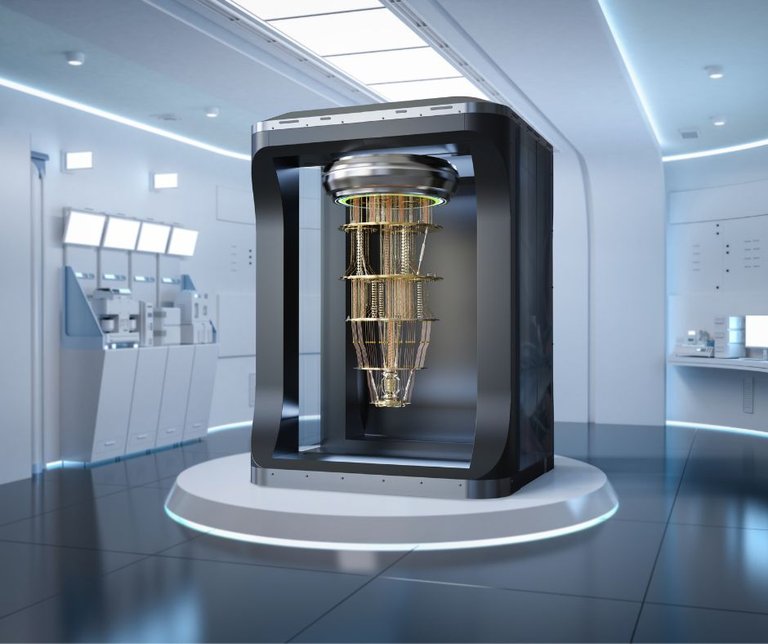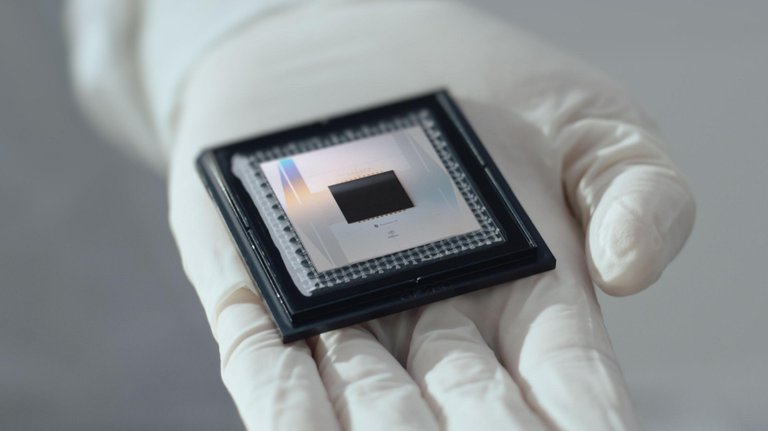Google’s Quantum Leap: Willow CPU
Goooood day Lion's happy hump day as this year comes to a close we've got some big news coming out of Google's head office and the development of a Quantum chip which is set to change the computing world as we know it. Recent news has already stated that this chip can solve the most complex problems in minutes whereas the current super computers would take 10,000,000,000,000,000,000,000,000 years.
An impressive feat, but what does this mean for the rest of us? Such a powerful computer out there means none of our passwords are safe, banks are in trouble and a whole lot more. It will be interesting to see what the future holds. But let's cover some of the news from their press release.
# What Is Willow?The Willow chip has taken a decade of ongoing research and development at Google’s Quantum AI lab, led by Hartmut Neven. This quantum processor has been engineered to harness the peculiar principles of quantum mechanics and addresses many of the long standing challenges in the field. Quantum computing is different from traditional methods by using qubits which can exist in a state of 1, 0 or both at the same time allowing for greater and higher processing capabilities.
Willow has already demonstrated unprecedented performance. It completed a computational task in under five minutes that would take the world’s fastest supercomputers a staggering 10 septillion years, a number that eclipses the age of the universe itself. This milestone not only provides an insight into quantum computing's theoretical potential but also marks a step closer to solving real world problems currently insurmountable by classical computers.

Solving Qubit Errors
One of quantum computing's primary hurdles has been error correction. Qubits are notoriously fragile and prone to interacting with their environment in ways that introduce errors especially as more qubits are integrated into a system. Increasing the number of qubits exacerbated this problem. However, Willow has flipped the script.
Google's breakthrough lies in its ability to reduce errors as the number of qubits increases. By scaling arrays of qubits from grids of 3x3 to 7x7, researchers achieved an unprecedented reduction in error rates. This advancement, known as being "below threshold," shows real progress in quantum error correction. This has been a challenge that has plagued scientists since Peter Shor first proposed error correction methods in 1995.
This success also marks one of the first instances of real time error correction on a superconducting quantum system. Such achievements validate the feasibility of building scalable logical qubits and signal that quantum computers capable of solving commercially relevant problems are within reach.

Use Cases for Quantum Computing
While Willow's capabilities are still experimental at this stage, its potential applications are boundless. From revolutionizing drug discovery and optimizing nuclear fusion reactors to enhancing cybersecurity and developing superior car batteries, quantum computing promises to reshape industries. Google's advancements could create the next wave of technological breakthroughs in fields where classical computation falls short, including logistics optimization and energy distribution.
the transformative power of quantum computing also raises some concerns. The ability to solve complex problems rapidly could compromise existing encryption methods prompting tech companies like Apple to develop “quantum-proof” encryption for sensitive data. Governments worldwide are racing to stay ahead, with the U.S. investing billions through initiatives like the CHIPS and Science Act and the National Quantum Initiative Act. Similarly, China has allocated over USD 15 billion to quantum research, reflecting the global strategic importance of this technology.
And it’s impacts on Blockchain technology and hash rates is another thing to be seen not to mention our wallets which require encryption.
Despite Willow’s ground breaking achievements experts urge caution. Professor Alan Woodward from Surrey University notes that benchmarks like Willow's are often tailored to highlight quantum supremacy over classical systems. Such comparisons may not fully capture the technology’s readiness for practical applications. Michael Cuthbert, director of the UK’s National Quantum Computing Centre, echoes this sentiment describing Willow as a “milestone rather than a breakthrough.”
while Willow is a significant step forward, it remains years and billions of dollars away from enabling the fully fault tolerant quantum computers envisioned by researchers. Nonetheless, Google's success with error correction and system scalability provides a solid foundation for future advancements.

The Future Ahead
While it is exciting news it is unlikely any of us will be having a quantum computer anytime soon with the delicate nature of a qubit it requires to remain cold and we're back at the stage of computers being quite large. In time things will progress as better and more efficient cooling systems are developed.
So I look forward to eventually one day having a quantum computer in my phone that I can take with me everywhere, at that stage none of us will ever have to think again as our brains will be outsourced. We can focus on living a life of luxury, alternatively once the first AI system gets a hand of a Quantum Computer we could usher in our own downfall - Skynet.
image sources provided supplemented by Canva Pro Subscription. This is not financial advice and readers are advised to undertake their own research or seek professional financial services
Posted Using InLeo Alpha

